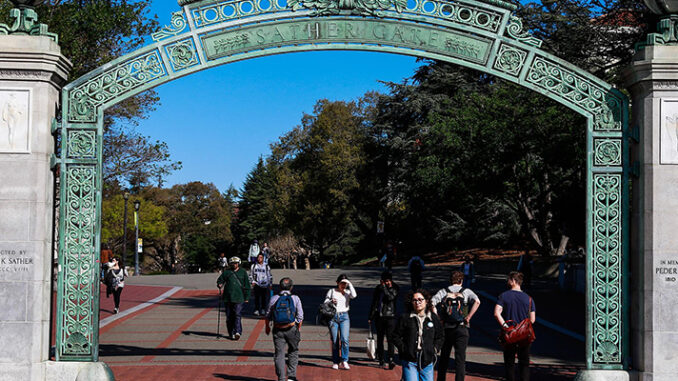
by
Understanding how the country’s most diverse state came to have a notorious ban on affirmative action requires appreciating how different a place California was in the mid-1990s. Today, Republicans control no statewide offices and Democrats enjoy supermajorities in both houses of the legislature. In the mid-’90s, however, California Republicans were still in the game. Their standard-bearer, Gov. Pete Wilson, was seeking the Republican presidential nomination, and he seized on the issue of ending affirmative action to shore up his support on the right.
By virtue of his office, Wilson was a member of the University of California’s Board of Regents, and in 1995 he used his position to promote ending the consideration of race in UC admissions, which the board endorsed by a 15-10 vote. The next year, Wilson took the cause a step further. He and other activists for color-blind admissions promoted Proposition 209, which would use the state’s ballot initiative process to cement into California’s constitution a sweeping prohibition against government use of affirmative action — not just in UC admissions but also in all state functions, including hiring and contracting.
Wilson’s presidential ambitions fizzled, but the initiative passed with nearly 55 percent of the vote. It has been a significant obstacle to racial equality ever since.
These events would be almost impossible to imagine in California today. Yet even as California’s demographics have undergone a tectonic shift in the past quarter-century — non-Hispanic Whites went from being a majority in the mid-1990s to a minority behind Latinos today — Proposition 209 has proved stubbornly difficult to amend, with various attempts over the years failing along the long political road to enactment.
This year, however, the death of George Floyd in Minneapolis — and the nationwide reckoning it prompted — might make the difference.
Assemblywoman Shirley Weber, a San Diego Democrat, was a professor at San Diego State University in 1996 when she first campaigned, unsuccessfully, against Proposition 209. This March, she introduced legislation to place the repeal of Proposition 209 on the November ballot but wasn’t sure she had the votes. That changed in 8 minutes and 46 seconds in Minneapolis.
In mid-June, the UC Board of Regents unanimously endorsed Weber’s legislation, as did students and faculty leaders. On June 24, the California Senate voted overwhelmingly to place Proposition 16 — which would fully repeal Proposition 209 — on the Nov. 3 ballot.
Despite the favorable political climate, the outcome is far from certain. Where possible, the University of California has tried to compensate for the affirmative-action ban by giving weight to applicants’ economic status and whether their parents are college graduates — measures that end up benefiting many underrepresented minorities. But it hasn’t been nearly enough to prevent uneven outcomes among racial groups, with implications for the politics of Proposition 16.
Between 1996 and 2019, the entire University of California system became more selective: Whites, Latinos and Blacks saw higher-than-average declines in admission rates, while Asians saw lower-than-average declines in admission. White, Latino and Black representation in the enrolled UC class of 2019 also lagged each group’s share of the state population. While Asians make up 15 percent of the California population, they made up 35 percent of the 2019 UC freshman class.
Unsurprisingly, much of the opposition to the repeal of Proposition 209 comes from California’s Asian communities. Several Asian American legislators voted against Weber’s measure. “I do not want to live in a state where the color of my skin or my race or my sex or my national origin determines my qualifications for a position, a job or entering to a college,” said Assemblyman Steven Choi. “I came here to this country to get away from ideologies like that.”
But Weber and other champions of Proposition 16 hope that the new reckoning over race will overcome these concerns. Some of the state’s top political consultants have signed on to run the “Yes on Prop 16” campaign, which has already raised $3 million, dwarfing the $90,000 raised so far by the opposition.
President Trump is also deeply unpopular in California, and policies that smack of his conservative attitudes toward race might fare poorly among the state’s heavily Democratic voter base. Still, anti-Trump fervor won’t be enough. The “Yes on Prop 16” campaign must show that equality is in everyone’s interest. Taxpayer-funded universities can help address the injustices that are now finally getting public attention by giving a hand up to historically disadvantaged young people.
But doing so first requires acknowledging that race matters. When Proposition 209 was put in place nearly a quarter-century ago, voters bought into the argument that ending affirmative action would hasten the arrival of a color-blind society. As recent events have shown, that day clearly has not arrived.
Dan Morain, a former reporter for the Los Angeles Times and editorial page editor of the Sacramento Bee, has covered California politics and policy since 1991.



